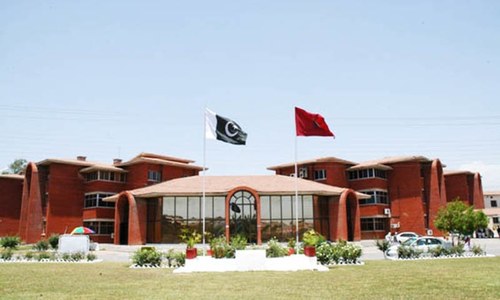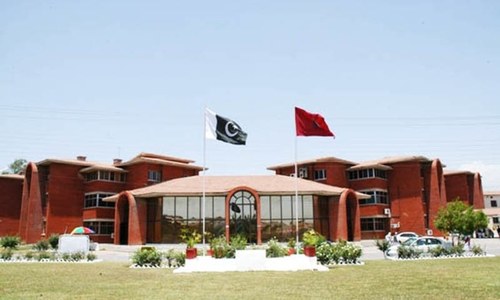LAHORE: The Punjab government on Saturday formed a five-member committee to probe the loss of eyesight among dozens of patients allegedly after being administered locally manufactured injection “Avastin” at different hospitals in the province.
The committee will submit its report within three days and will also put forward recommendations to avoid recurrence of such incidents in future.
Punjab Minister for Primary and Secondary Healthcare Dr Jamal Nasir took notice of the eye infection incidents and constituted a five-member committee.
The committee was led by King Edward Medical University Dr. Asad Aslam Khan as convener while other members included Director General Drugs Control Muhammad Sohail, Mayo Hospital’s Dr. Muhammad Moin, Lahore General Hospital’s Dr. Tayyaba and Services Hospital’s Prof Dr. Mohsin.
Drug inspectors directed to stop sale, purchase of Avastin
According to reports, diabetic patients in Lahore, Kasur, and Jhang districts were administered Avastin injections to address retinal damage. However, these injections led to severe infections, ultimately resulting in the loss of eyesight of approximately 12 patients, including the brother of senior Pakistan People’s Party leader Chaudhry Manzoor and his friend. In Kasur, four individuals namely Chaudhry Shabbir, Main Aslam, Taufeeq, and Nasrin Bibi, also suffered irreversible vision loss.
Dr Asim Gill, who administered the injections at Sharif Hospital, stated that Avastin is exclusively used to restore vision damaged by diabetes. Normally, three to four injections are administered to a patient, but in this case, several individuals lost their eyesight.
Dr. Gill mentioned that three of the affected patients underwent surgery and regained their vision.
Mayo Hospital head surgeon Prof Asad Islam raised concerns and wrote a letter to the health department.
He reported that numerous patients who received Bevacizumab injections supplied by Mr. Naveed suffered from blinding eye infections in Lahore and other parts of Punjab. This infection was attributed to unsterilised injections, and Prof. Aslam emphasised the need for serious attention to prevent such incidents in the future.
In a media statement, Prof. Aslam recommended that Avastin injections should be purchased exclusively from Shaukat Khanum, and he had previously communicated this concern to the health department.
Talking to the media, minister Dr. Jamal said the warehouse [where the injection was kept] had been sealed and drug inspectors across Punjab activated to stop the sale and purchase of the injection.
He said all doctors and patients have been instructed not to use Avastin injection and medical stores, wholesalers and distributors stopped from selling it.
He said the samples of the injection have been sent for lab tests to ascertain the facts.
Nishtar Medical University senior registrar Dr Nausherwan Adil shed light on the sourcing of the Bevascizumab vial, stating that it was purchased from a UK-based company. Approximately 70 injections of 1.25 mg/0.5ml were prepared from each vial under specialised conditions.
He highlighted that Shaukat Khanum, Doctors’ Hospital, and Saira Memorial Hospital have facilities to manufacture these injections within controlled environments and sensitivity reports.
He said the investigation should focus on potential sources of contamination, including inadequate sterilisation, infected vials, non-sterile syringes, and deviations from standard operating procedures in the drug dispensing process.
Published in Dawn, September 24th, 2023











































